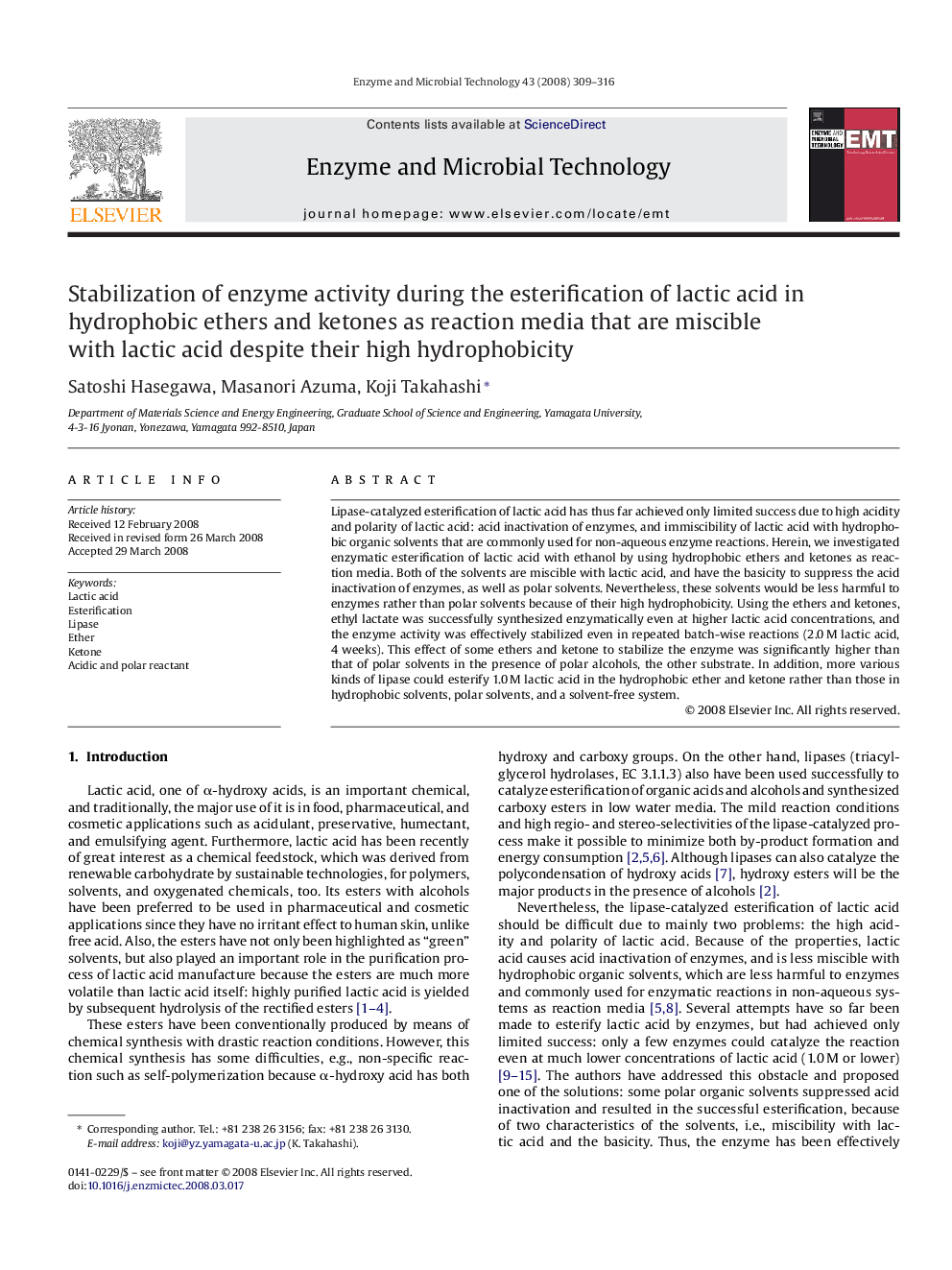| Article ID | Journal | Published Year | Pages | File Type |
|---|---|---|---|---|
| 17957 | Enzyme and Microbial Technology | 2008 | 8 Pages |
Lipase-catalyzed esterification of lactic acid has thus far achieved only limited success due to high acidity and polarity of lactic acid: acid inactivation of enzymes, and immiscibility of lactic acid with hydrophobic organic solvents that are commonly used for non-aqueous enzyme reactions. Herein, we investigated enzymatic esterification of lactic acid with ethanol by using hydrophobic ethers and ketones as reaction media. Both of the solvents are miscible with lactic acid, and have the basicity to suppress the acid inactivation of enzymes, as well as polar solvents. Nevertheless, these solvents would be less harmful to enzymes rather than polar solvents because of their high hydrophobicity. Using the ethers and ketones, ethyl lactate was successfully synthesized enzymatically even at higher lactic acid concentrations, and the enzyme activity was effectively stabilized even in repeated batch-wise reactions (2.0 M lactic acid, 4 weeks). This effect of some ethers and ketone to stabilize the enzyme was significantly higher than that of polar solvents in the presence of polar alcohols, the other substrate. In addition, more various kinds of lipase could esterify 1.0 M lactic acid in the hydrophobic ether and ketone rather than those in hydrophobic solvents, polar solvents, and a solvent-free system.
